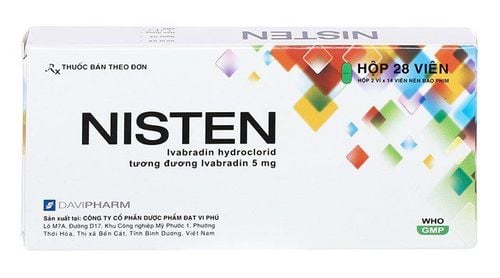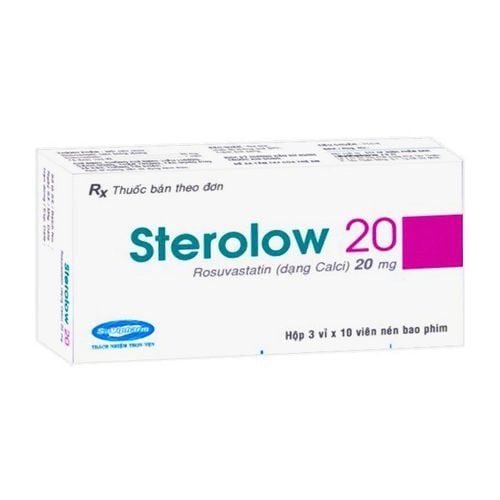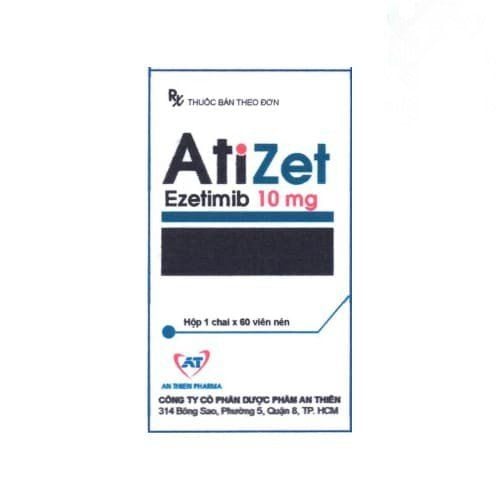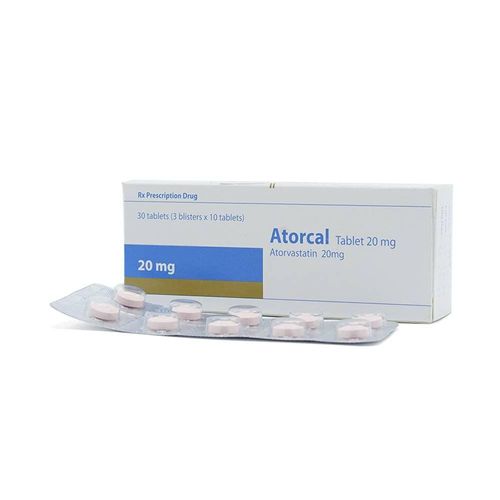This is an automatically translated article.
Vaptor 20 is a cardiovascular, lipid-lowering drug, containing the main ingredient Rosuvastatin. The drug is used in cases of primary hypercholesterolemia or mixed dyslipidemia. Let's learn more about Vaptor pills through the article below.1. What is a vaptor?
Vaptor is a drug with blood lipid lowering effect, containing 20mg of Rosuvastatin, in the form of active ingredient Rosuvastatin Calcium and other excipients. The effect of Vaptor 20 is effective in elderly patients with hypercholesterolemia, with or without hypertriglyceridemia, in special patient groups such as diabetes or patients with familial hypercholesterolemia. The drug can prevent complications related to lipid abnormalities such as coronary heart disease, reduce mortality, and reduce morbidity when taking drugs. Rosuvastatin is a competitive, selective inhibitor of HMG-CoA reductase, which catalyzes the conversion of 3-hydroxy-3-methylglutaryl coenzyme A to a cholesterol precursor called mevalonate. The main site of action of the drug is the liver, the target organ of lowering cholesterol. Rosuvastatin is a substance that increases the number of LDL receptors on the surface of hepatocytes, increases the absorption and catabolism of LDL and inhibits the synthesis of VLDL in the liver, thereby reducing the VLDL and LDL components. The drug lowers levels of LDL-cholesterol, total cholesterol and lowers triglycerides but at the same time increases HDL-cholesterol. Vaptor also reduces ApoB, VLDL-C, non-HDL-C, decreases VLDL-TG and increases ApoA-I. The drug also reduced the LDL-C/HDL-C ratio, the total C/HDL-C ratio, the non-HDL-C/HDL-C ratio, and the ApoB/ApoA-I ratio. After oral administration, peak blood concentrations of rosuvastatin are reached after 5 hours. The drug is widely distributed in the liver, where cholesterol synthesis and clearance of LDL-C take place. Approximately 90% of the drug rosuvastatin is bound to plasma proteins, mainly albumin. Vaptor is poorly metabolized (about 10%). The major metabolites of rosuvastatin are N-desmethyl and lactone. The N-desmethyl substance is about 50% less active than the parent compound, while the lactone substance is not clinically active. Approximately 90% of a dose of Vaptor is excreted unchanged in the faeces (both absorbed and unabsorbed active substances), the remainder is excreted in the urine. The plasma half-life of Vaptor is approximately 19 hours, which does not increase with higher doses.2. Indications and contraindications for using Vaptor 20
2.1. Point
Vaptor 20 is used in the following cases:
Patients with primary hypercholesterolemia, including heterozygous familial hypercholesterolemia. Patients with mixed dyslipidemia (type llB). Patients with homozygous familial hypercholesterolemia.
2.2. Contraindications
Do not use Vaptor 20 in the following cases:
The patient is allergic to Rosuvastatin and the excipients in the drug. Patients with developed liver disease, or unexplained persistent elevation of blood transaminases, when serum transaminases are elevated more than 3 times the upper limit of normal. Patients with severe renal failure, muscle disease. The patient is taking cyclosporin. Patients who are pregnant, lactating, women who can become pregnant do not use safe contraception.
3. Dosage and how to use Vaptor 20
3.1. How to use
Vaptor is used orally, patients should take the entire Vaptor tablet, do not chew, break, or crush the tablet because it may reduce the effectiveness of the drug. Oral medications are taken at any time of the day without regard to meals.
Before starting to use Vaptor, patients need to apply a standard diet to reduce cholesterol, continue to maintain this diet during treatment with Vaptor.
3.2. Dosage
It is recommended to always start using the lowest effective dose of Vaptor, the dose can be adjusted according to the needs and response of the patient, until the LDL cholesterol level is at the desired level or when the maximum dose of the drug is reached. multi.
Initial dose: Take a dose of 5mg or 10mg, once a day. If necessary, adjust the dose every 4 weeks. The oral dose of 40mg should only be used when patients with severe hypercholesterolemia, or at high risk of cardiovascular disease, do not achieve the treatment goal when used at a dose of 20mg. Patients should be monitored when taking an oral dose of 40mg.
4. Unwanted effects when using Vaptor 20
Unwanted effects when patients take Vaptor pills are usually mild and transient. The frequency of adverse reactions tends to be dose dependent.
Rare immune disorders: Hypersensitivity, allergic reactions including angioedema. Nervous system often has headache, dizziness. Common digestive system disorders: Abdominal pain, constipation, nausea. Uncommon skin and subcutaneous tissue disorders such as skin itching, rash, urticaria. The most common musculoskeletal and connective tissue disorder is myalgia. Rare reactions: Myopathy, rhabdomyolysis. Effects on kidneys, liver: proteinuria, increased transaminases,...
5. Notes when using Vaptor 20
In the process of taking Vaptor, patients should pay attention to the following issues:
In patients with a history of liver disease, caution should be taken when the patient has factors that are prone to rhabdomyolysis such as hypothyroidism, renal failure, history personal history, family history of hereditary muscle disease, or history of muscle toxicity due to other HMG-CoA reductase inhibitors, fibrates, over 70 years of age, alcoholism, conditions causing increased drug levels in the blood, taking the drug concomitantly with fibrates. Discontinue use of Vaptor if transaminase levels are greater than 5 times the upper limit of normal or the patient has severe muscle symptoms. Should not be used in patients with sepsis, trauma, hypotension, major surgery, electrolyte disorders, metabolism, endocrine disorders, uncontrolled seizures. The drug Vaptor does not affect the use of machines, the ability to drive. For women of childbearing age, vaptor should be used only when pregnancy and very high hypercholesterolemia can be ruled out. Above is an article about the use of Vaptor, its dosage and important notes when using it. Vaptor is a prescription drug, patients should not self-medicate, should consult their doctor if they have any questions during the course of taking the drug.













